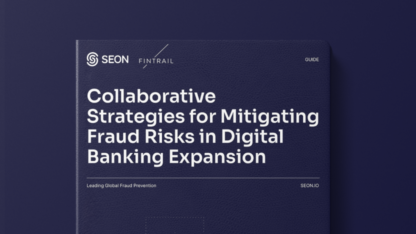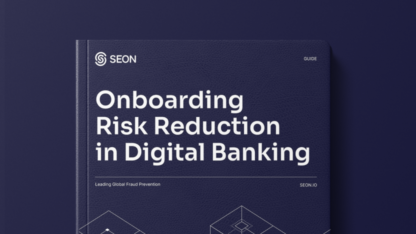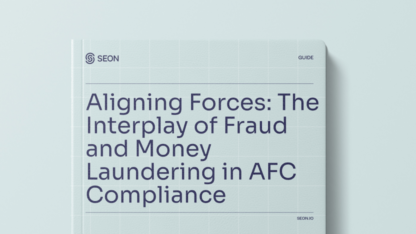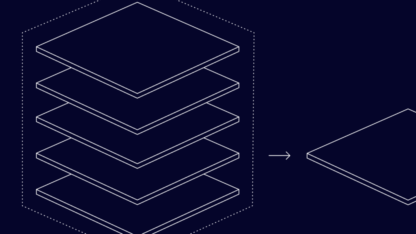Background checks are a cornerstone of the modern job application process. And yet, the tools used to vet identities are still surprisingly archaic, especially when it comes to dealing with fully remote applicants. Here’s how you can deploy modern background checks to ensure you do not onboard fraudulent employees.
What Are Background Checks?
A background check is a process designed to confirm someone’s identity and to ensure they are trustworthy. This trustworthiness can be measured based on the individual’s history of fraud, delinquency, criminal behavior, or even credit score.
Background checks may look at the following areas:
- employment, education history, and right to work
- criminal record (via a DBS – Disclosure and Barring Service check)
- drug screening and medical history
- financial records and motor vehicle checks
- social media usage
There is no strict definition of what constitutes a background check. However, some companies may be required to perform due diligence for specific areas (for instance, they may need to check new starters’ criminal records when they hire staff in educational settings).
While background checks can be run for firearm purchases or property rental agreements, by far the most common reason is to screen potential hires.
Finally, note that background checks are increasingly regulated by government bodies, notably to avoid discrimination or to ensure data protection. In the US, for instance, the Fair Credit Reporting Act from the Federal Trade Commission defines which consumer reports can be collected as part of a background check.
Partner with SEON to reduce fraud rates in your business with real-time data enrichment, whitebox machine learning, and advanced APIs.
Ask an Expert
What Kinds of Fraud Can Background Checks Prevent?
A report by the American Institute of Certified Fraud Examiners claims that employers lose approximately 5% of their gross revenue to fraud. This amounts to $6.3 billion in total losses worldwide, with a median loss per case of $150,000.
In theory, background checks could help alleviate these losses by allowing companies to flag untrustworthy individuals before it is too late. The goal would be to curb embezzlement, data leaks, and even money laundering.
In some cases, employers have also been duped by identity thieves. This is especially prevalent following the rise of remote jobs, where unscrupulous candidates can easily forge documents to pass a job interview.
While this scenario does not necessarily make you, as the employer, an accomplice to fraud, you have to consider the risks of hiring someone without proper due diligence.
The Downsides of Standard Background Checks
While background checks are common practice, they’re not always effective. Here are a few reasons why:
- Background checks are slow: It can take hours – if not days – before you receive results about your inquiry. This is particularly challenging when pre-screening a large volume of employees for an urgent position.
- They are expensive: It can cost up to $30 to run a full background check on an individual using a commercial service.
- Identity thieves can easily fool them: If you’re dealing with a sophisticated fraudster, they won’t simply apply under a different name – they’ll outright steal a person’s entire identity. That means the background checks will be flawed, as any research you do will be about someone else.
- They lack nuance: Some candidates may pass checks such as DBS screening while managing to hide financial irregularities that would make them a poor fit for your company.
- They don’t track changes in status: Background checks can only look at past events. You may miss out on good candidates who have turned their life around or accept individuals whose right-to-work status was recently updated.
Alternative Background Checks to Spot Candidate Fraud
In many ways, background checks are closely related to KYC verification. The key difference is that the former is used to verify candidates’ identities, while the latter is deployed for customers and clients.
Nevertheless, there is an overlap in the kind of tools you can rely on to verify identities – especially if you want to do it automatically and at scale. Here are examples of what you could leverage today:
- OSINT checks: Open source intelligence techniques leverage free online databases to locate extra information about people. This runs the gamut from simple Google search queries to sophisticated research frameworks designed to gather as much data as possible.
- Reverse email address lookup: Email profiling is a simple yet powerful way to gather information about someone based on their email address alone. You can gather social media profiles and check if the email domain is suspicious.
- IP address lookup: An IP lookup tool will let you know if the candidate is connecting to your job platform or other website using a suspicious configuration of software and hardware. It doesn’t mean they are fraudsters, but you can reasonably ask them to justify, for instance, using a VPN.
- Social media lookup tools: As the world grows increasingly social, more and more companies are relying on people’s social media presence to vet the trustworthiness of individuals. However, while social media lookups are both legal and a key part of anti-fraud strategies, it’s more controversial in the context of background checks or credit checks. Even if the information gathered is considered open source, some candidates may find it invasive to have their social life brought to light.
How SEON Can Catch Fraudsters Before Background Checks
SEON’s panoply of anti-fraud tools is designed to give you more information about online strangers. You can learn how they connect online (including what kind of device they use), and SEON’s email address and phone number lookups can point to the person’s true online footprint, including social media accounts and previous activity.
The goal is twofold. Firstly, to help you profile people as quickly as possible, based on as little information as possible, without any friction. Secondly, it lets you instantly raise red flags when data appears suspicious.
For instance:
- Does the candidate appear to have no social profiles at all?
- Are they hiding or spoofing their connection data?
- Does their connection point to a location that’s different from where they claim to be?
All these questions are increasingly important for companies who need to perform background checks to catch fraud as early as possible. Ready to learn more about how it could work for your business? Get in touch with SEON today.
FAQ
Background checks tend to cost between $20 to $30. You may find more affordable prices depending on volume and thoroughness.
A background check tends to return results relating to criminal records and past employment. More thorough checks will also look at financial history and even social activity.
Felony or even misdemeanor criminal convictions on your criminal record could be a red flag for employers or real estate agents. For online applicants, a suspicious connection via VPN or Tor could also signal that you are a fraudster.
Sources
- ACFE: REPORT TO THE NATIONS ON OCCUPATIONAL FRAUD AND ABUSE
- Federal Trade Commission: Fair Credit Reporting Act








